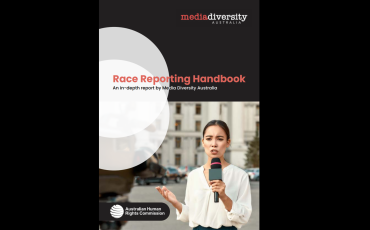Freedom from Discrimination: Report on the 40th anniversary of the Racial Discrimination Act

Foreword
Forty years ago, the Commonwealth Parliament enacted the first federal human rights and discrimination legislation. The Racial Discrimination Act 1975 (Cth) was a landmark in Australian race relations. Enacted shortly after the formal abandonment of the White Australia policy, it was a legislative expression of a new commitment to multiculturalism – and reflected the ratification by Australia of the International Convention on the Elimination of All Forms of Racial Discrimination and its commitment under that Convention. As described by Prime Minister Gough Whitlam at a ceremony for its proclamation in October 1975, the Act was ‘a historic measure’, which aimed to ‘entrench new attitudes of tolerance and understanding in the hearts and minds of the people’.
The Act’s anniversary has presented an opportunity to reflect on how the legislation has fulfilled its purpose. What effect has it had in eliminating racial discrimination? How successful has it been in entrenching ‘new attitudes of tolerance and understanding’? What remains to be done in combating prejudice, bigotry and discrimination?
These were some of the questions posed through the commemorative activities we have conducted throughout the year. A conference held in February (‘RDA@40’) saw academic experts and community leaders provide critical reflections about the Act’s impact on Australian public law and multiculturalism. A series of public consultations held in each of the states and territories gave us the opportunity to learn about individual and community experiences of racial discrimination and of using the Act. Through it all, we have been guided by two aims: promoting public understanding of the Act and the protections it affords all Australians against racial discrimination, and investigating the lived experience of racial discrimination in today’s society.
This report documents the activities and findings of this year’s anniversary activities. It follows two other publications this year: Perspectives on the Racial Discrimination Act, which collated a selection of the papers presented at ‘RDA@40’; and I’m Not Racist But ... 40 Years of the Racial Discrimination Act, a book published by NewSouth Publishing in partnership with the Australian Human Rights Commission. The main findings of this report relate to the public consultations conducted about the Act, though they also draw upon the research generated by the ‘RDA@40’ conference.
As this report shows, the experience of racial discrimination continues to affect many Australians, in spite of our success as a multicultural society. It is a genuinely complex phenomenon – not born of any one cause, not confined to any one setting and not limited to any one community. It is also something that can be overt as well as covert, revealed in identifiable individual acts but also more insidiously in institutional form.
The Act plays an important role in countering racial prejudice and discrimination, whether as an instrument for making complaints or as a tool of community advocacy. As the consultations revealed, the Act also provides sets a standard for how we live together, providing public assurance that those who experience racism will have the law on their side. At the same time, the consultations reminded us that legal protections are by no means sufficient in eliminating prejudice and discrimination. There remains room for improvement in our society’s response to racism.
I thank staff at the Commission who have been involved in this year’s anniversary activities: Ting Lim, Rivkah Nissim, Anna Nelson, Katie Ellinson, Samantha Schubert, Kristian Barron, Lucian Tan, Angela Dorizas. I also acknowledge the support of my state and territory colleagues at the Victorian Equal Opportunity and Human Rights Commission; Anti-Discrimination Commission Queensland; Equal Opportunity Commission of South Australia; Equal Opportunity Commission – Western Australia; Office of the Anti-Discrimination Commissioner, Tasmania; ACT Human Rights Commission; and Northern Territory Anti-Discrimination Commission.
Most of all, I thank those who have participated in our anniversary activities. In particular, I am grateful to those who joined our consultations across the country; in sharing your stories and experiences, you have given voice to what racism means in Australia today.
Dr Tim Soutphommasane
Race Discrimination Commissioner
Australian Human Rights Commission
November 2015



